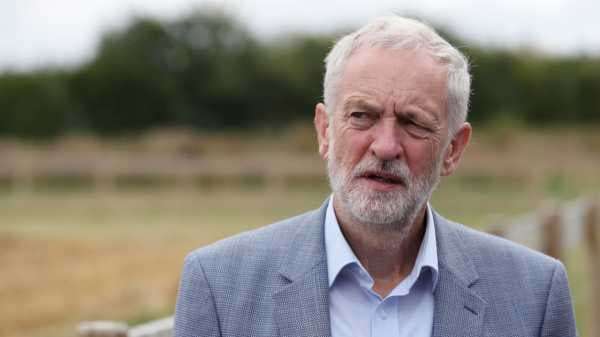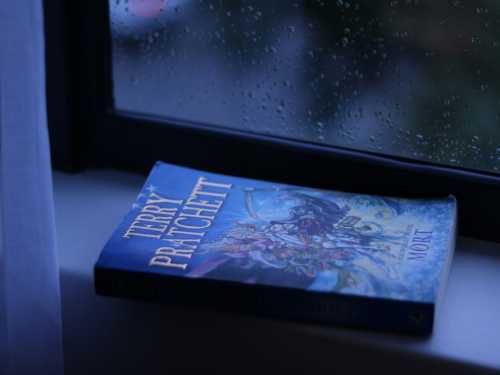
With newspapers in Britain forecasting the potential catastrophe of a “no deal” Brexit—chaos at the borders, empty shelves in the supermarkets, the pound through the floor—Jeremy Corbyn, the leader of the Labour Party, might be forgiven for hoping that the anti-Semitism crisis his party is undergoing would fall out of the headlines. No chance. Last week, a video emerged of remarks that Corbyn made at a conference in 2013, when he was still merely a left-leaning Member of Parliament in a woolly sweater, rather than the anointed alternative to Prime Minister Theresa May. In the clip, less than a minute long, Corbyn praised Manuel Hassassian, the Palestinian Ambassador to the U.K., for a speech he’d recently given to a Parliamentary group. Corbyn also criticized the reception given to Hassassian’s remarks by some members of the audience, whom he characterized as “thankfully silent Zionists.” These aforementioned Zionists, he went on, “clearly have two problems. One is that they don’t want to study history, and secondly, having lived in this country for a very long time, probably all their lives, they don’t understand English irony, either.”
Corbyn’s critics, including colleagues in Parliament, were appalled by his suggestion that British-born Jews might fail, in some essential sense, to be fully English. Luciana Berger, a Labour Member of Parliament for Liverpool, who is Jewish, said that the comments made her feel “unwelcome in my own party.” An official complaint was brought against Corbyn within the Party, calling for his suspension as leader and an investigation into his conduct. In the days following the video’s release, Corbyn compounded the offense by insisting that he had used the term “Zionist” “in the accurate political sense”—not as a coded term for all Jews. That qualification suggested that his remarks were not intended as a slur against all Jews, merely those Jewish activists present at the speech in question. Commentators swiftly pointed out that to defend oneself against accusations of anti-Semitism by insisting that one was using anti-Semitic tropes only to characterize some Jews, not all of them, is no defense at all.
In the debate over the remarks, and whether they constitute willful anti-Semitism, unconscious anti-Semitism, or something more negligible, relatively little attention has been paid to the quality of Englishness that Corbyn passingly elevates and celebrates: the appreciation of irony. To be able to appreciate irony—and specifically English irony—is, he implies, a core value, without which an individual cannot truly comprehend or participate in the culture.
It’s the left-leaning equivalent of the notorious “Cricket test,” mooted nearly thirty years ago by Norman Tebbit, the former Conservative cabinet minister, who suggested that British Asians who failed to support the English cricket team in test matches against Pakistan or India were insufficiently assimilated.
Whatever else the remarks indicate about Corbyn’s character, they certainly reveal that he adheres to a widespread English fetishization of irony. The English investment in irony can hardly be overstated, which is why suggesting that an individual, or a community, might be incapable of appreciating it is especially damning. Irony is to the English what self-reliance is to Americans, or what linguistic cultivation is to the French: a core value often elevated to the status of myth. One might say that the English take pride in their sense of irony, though pride is not quite the right word for the national commitment to a mode of discourse that depends so entirely upon understatement. The belief that English irony, or the English sense of humor more broadly, amounts to an intangible national treasure is widespread. It is common to the point of cliché for English expats to list the national sense of humor among those aspects of life they most miss, along with Radio 4 and a decent cup of tea.
What, then, characterizes English irony? In one sense, it is the habit of saying one thing when meaning its opposite. But English irony does not merely depend upon reversal for its effect; it also depends heavily upon deflation, of oneself or of others. English irony, when effectively deployed, is what English pomposity looks like after being pricked with a pin. It was a triumph of English irony when, a couple of years ago, the National Environmental Research Council invited members of the public to name a twenty-million-pound polar-exploration ship, and the overwhelming winner was “Boaty McBoatface.” (Officials rejected the name in favor of the R.R.S. Sir David Attenborough, named for the naturalist and broadcaster.) Similarly, the personal ads in the London Review of Books turn irony into a minor art form, with would-be romantic partners competing with ever more outlandish displays of self-deprecation, describing themselves as “Sinister-looking man with a face that only a mother would love,” or “Woman, 24, inherited her mother’s unreasonable and utterly unfounded nostalgia (and her father’s hirsute back).”
In the London Review of Books personals, the wounding quality that is so often present in English irony is turned inward, to the point that self-loathing is so acute it becomes a form of self-love. (I may be ugly, but look how clever I am.) Often, though, the violence of irony is turned outward. The British playwright David Hare, in the notes to his play “Plenty,” writes that, when foreign actors ask him why a character behaves in a certain way, he believes it is sufficient to reply, “Because you are English.” Hare goes on, “Irony is central to English humor, and as a people we are cruel to each other, but quietly.” In this sense, Corbyn’s charge that some people “don’t understand English irony” participates in a ratcheting up of cruelty in the name of humor. The next step beyond hurting an individual or a group with a joke at their expense is to insist that their pain, far from being a justified response to verbal violence, is a symptom of deficiency on their part. The charge that a person lacks a sense of humor is a familiar bully’s tactic. Women in particular will recognize that the phrase “Can’t you take a joke?” is an expression of menace, not an invitation to share a laugh.
Above all else, the English valorization of irony participates in the English aversion to anything approaching earnestness. For a newspaper reviewer, for example, to describe the work of an author as painfully or overly earnest is to deliver a critique as withering as it is ineluctable: the author who has actually committed the transgression of earnestness is unable to dismiss the accusation with an ironical shrug. Irony requires a scrupulously refined emotional detachment. It is what the English have instead of therapy. (Irony’s counterpart, in the English context, is sentimentality, and, given enough drinks, any Englishman will morph from acidulous detachment to maudlin deliquescence.) To be able to maintain an ironical approach to life means avoiding a more passionately committed or passionately expressive one. It means arming oneself in advance against the possibility of pain or disappointment, by building pain and disappointment into one’s emotional default. Irony is resignation in jester’s clothing.
The irony of the contretemps surrounding Corbyn’s praise of irony is that, as prominent politicians go, humor is hardly his go-to rhetorical mode. For that we have Boris Johnson, the former Foreign Secretary, whose predilection for outrageous offensiveness in the form of disparaging jokes—he recently compared burqa-wearing women to “letterboxes”—is well known. Corbyn, as his political record shows, is among the most earnestly committed politicians ever to lead a party in Britain, in large part because he was never expected to lead one. Had he been more ambitious for leadership, he might have been, at the least, more circumspect about his public statements. Funny thing, politics.
Sourse: newyorker.com






